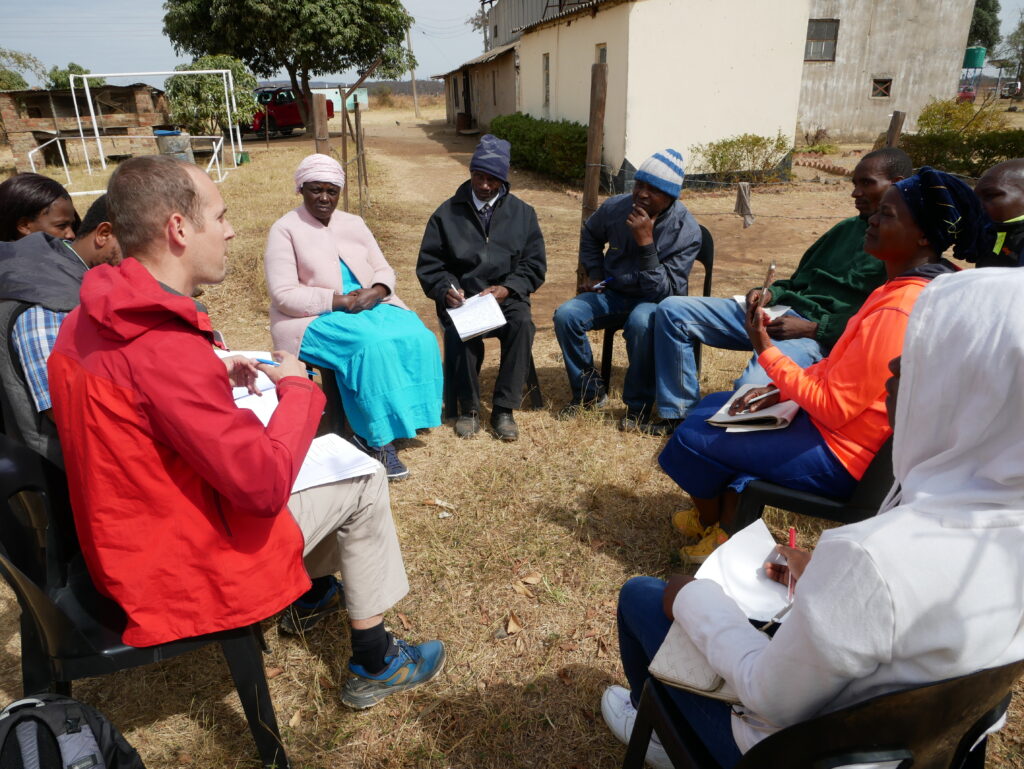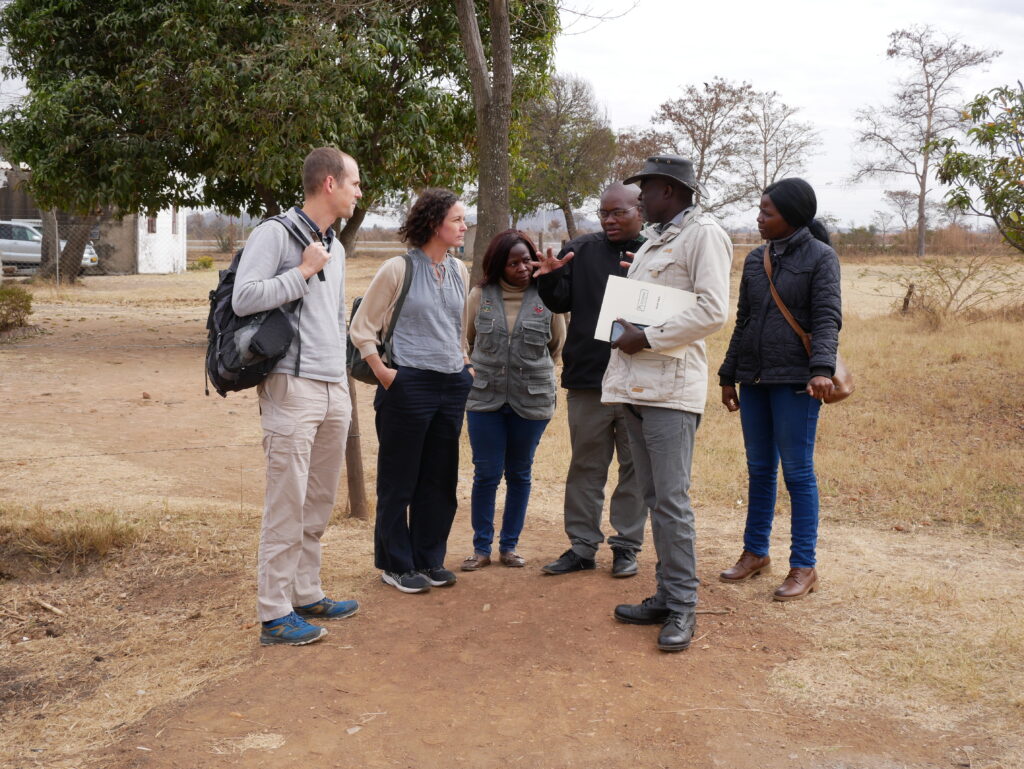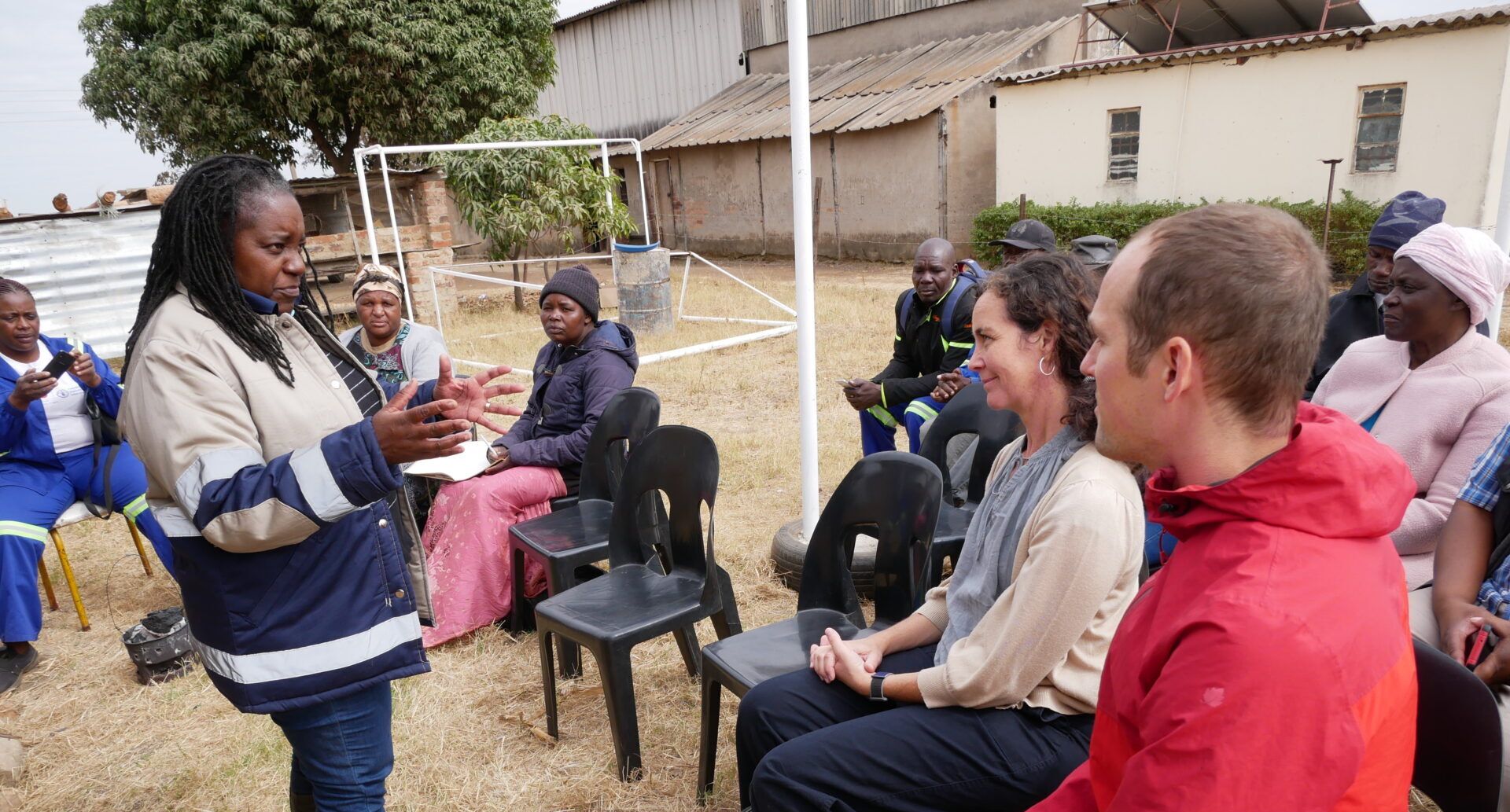On August 11th, ICARS advisors visited a Farmer Field School (FFS) established by the Food and Agriculture Organization of the United Nations (FAO) in Zimbabwe. The purpose of the visit was to gather insights on how an FFS operates before applying it as a model in ICARS´own project in Zimbabwe.
The poultry challenge in Zimbabwe: A recap of the project context
In Zimbabwe, poultry farming, particularly broiler production, plays a pivotal role in ensuring food security and income for small and medium-scale farmers. The rising levels of unemployment have led more individuals to venture into poultry production. However, a lack of experience and knowledge in poultry husbandry often results in low productivity and high mortality rates among the flocks. This compels farmers to frequently resort to antibiotic use to maintain poultry health.

Addressing antimicrobial challenges in livestock: The project solution
The ICARS project’s primary objective is to diminish antimicrobial use (AMU) in small to medium-scale broiler farms by enhancing biosecurity measures and animal husbandry practices through educational initiatives. This project will be carried out in three selected districts in Zimbabwe, involving small/medium commercial poultry farmers.
The ICARS project in Zimbabwe plans to employ the Farmer Field School as an intervention strategy to enhance biosecurity and reduce antimicrobial use in small and medium-scale broiler farms across these three districts.
Assessing impact: Observations from Zimbabwe’s Farmer Field School visit
The visit to the Farmer Field School held significance as it provided valuable insights into the school’s operations and offered an opportunity to discuss the benefits and challenges it faces. The farmers expressed numerous positive experiences. Despite facing some chicken mortality in the model farm, their income from chicken production continued to rise steadily.
Thanks to the Farmer Field School, they managed to enhance production both on their farms and in the model farm, generating sufficient revenue to support their children and cover their school fees.

What stood out to the advisors about the Farmer Field School is its sustainability model. The farmers initially received seed funding from FAO, which included 100 day-old chicks and feed to raise them in the model farm until slaughter. At the end of the first production cycle, instead of dividing the profits among themselves, they reinvested it by constructing a new poultry house and purchasing new day-old chicks for the model farm. This practice of reinvestment continued.

Although many of the chickens in the third batch perished, the farmers collectively contributed $5 each to procure a new batch of chicks to keep the school running, demonstrating their motivation. Farmers have also expressed their aspiration to establish a larger community farm to achieve even higher revenues in the future.
“The Farmer Field School visit was encouraging, and lessons learned from this school will be useful in designing the interventions for the ICARS project,” says Rodolphe Mader, the lead advisor on the project.
Find out more about this project here.

